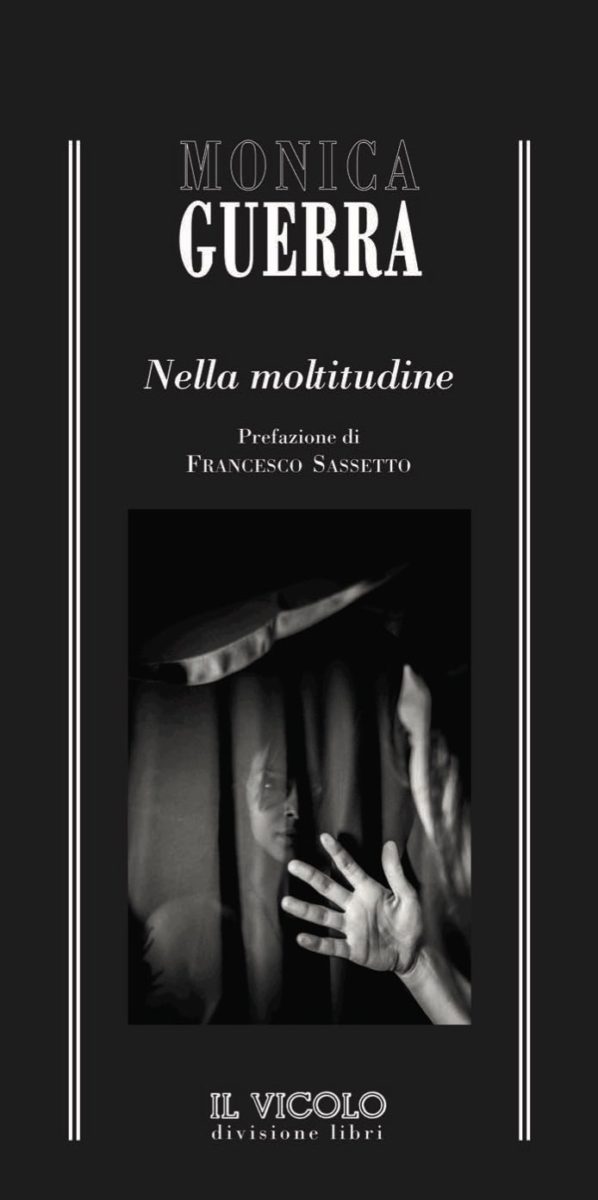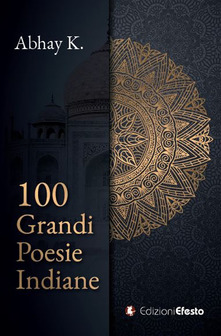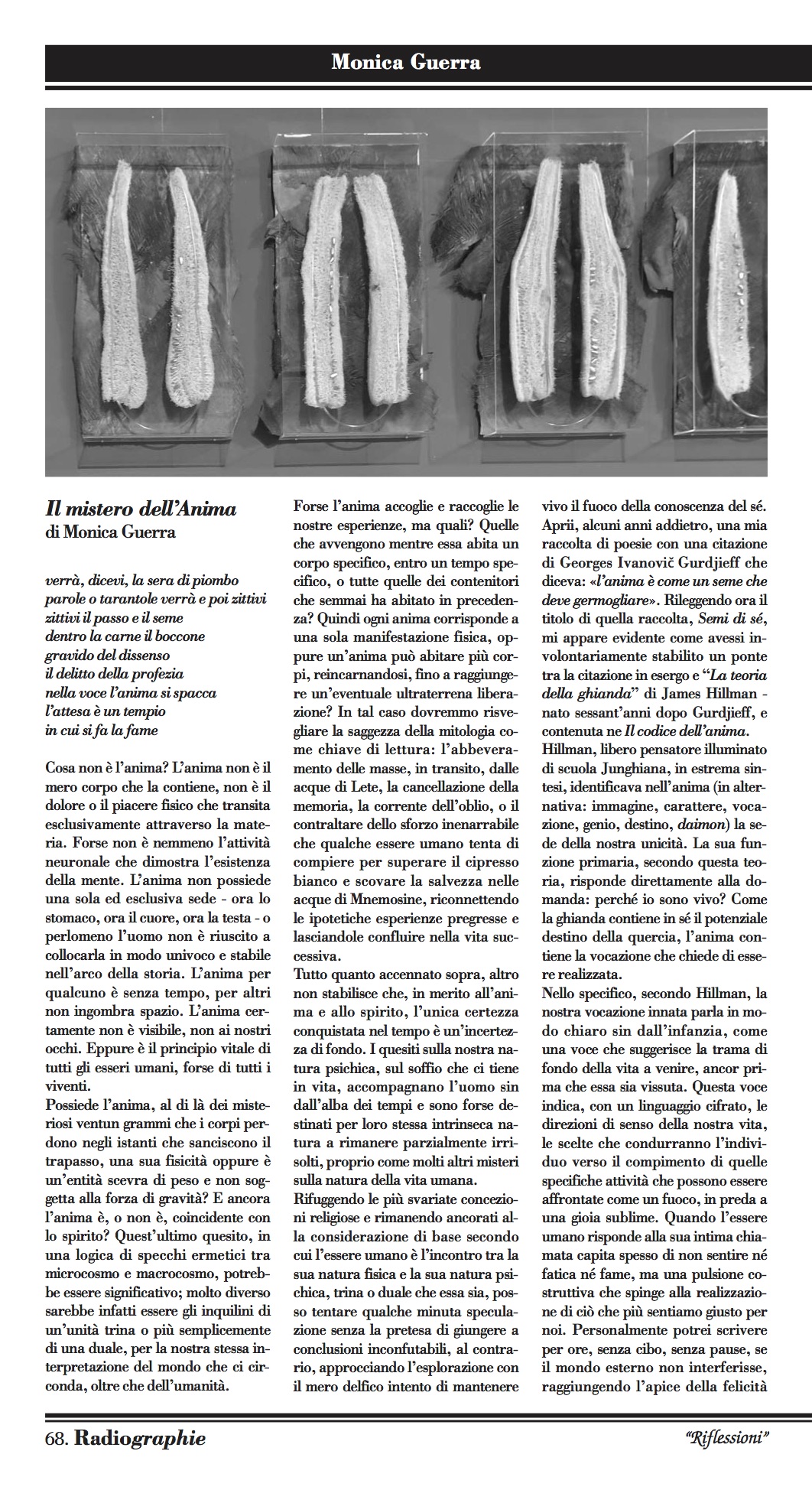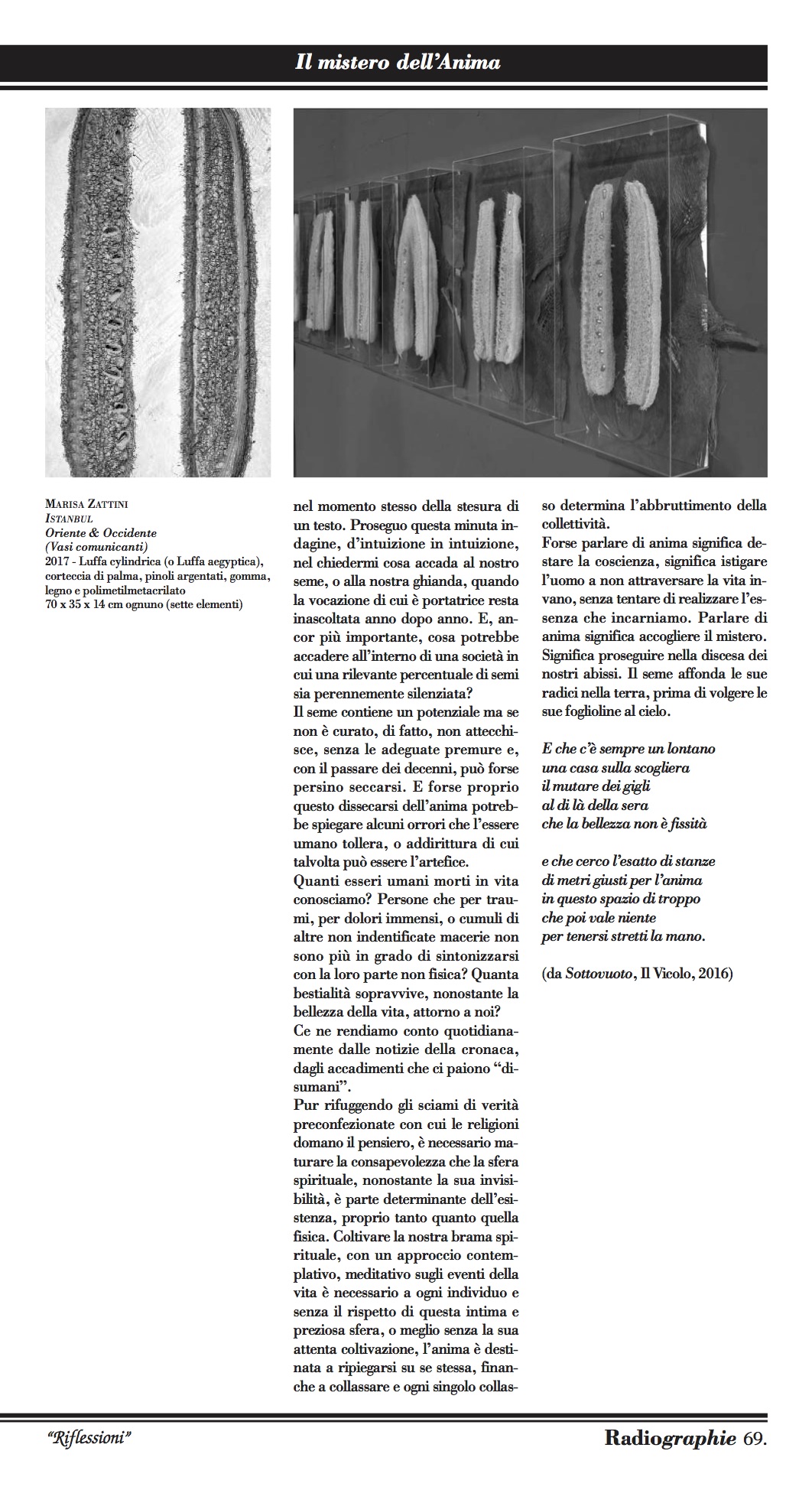
da Monica Guerra | Mar 11, 2020 | altre pubblicazioni
Tre inediti da Nella moltitudine
(Il Vicolo, 2020)
Anteprima editoriale
su Atelier
qui il link per leggere l’articolo
nella moltitudine
verrà, dicevi, la sera di piombo
parole o tarantole verrà e poi zittivi
zittivi il passo e il seme
dentro la carne il boccone
gravido del dissenso
il delitto della profezia
nella voce l’anima si spacca
l’attesa è un tempio
in cui si fa la fame


da Monica Guerra | Gen 10, 2020 | altre pubblicazioni
 En el umbral (Uniediciones, 2019)
En el umbral (Uniediciones, 2019)
Traduction Antonio Nazzaro
Es la bitácora de una larga despedida en un umbral que es una demarcación de un confín, de la esperanza de que todo pueda salir bien, de un happy ending inexistente. El relato de una pérdida por parte de quien se queda.
Cuando nos saludamos en el umbral porque alguien está a punto de partir, auguramos un buen viaje y un buen retorno. Si es cierto el no retorno ya desde un comienzo, se busca de todas las maneras posibles detener a quien está por irse, dándonos la ilusión de lograrlo durante los altibajos de un largo periodo de enfermedad. Y quien es capaz lo escribe, como hizo Monica. La sensible ternura, junta al dolor que sobresale desde el prólogo, viene al final, acercándose al sentido amargo de la realidad, pero con una mirada nueva, directa y ya sin el temor de aminorarse. Todo esto hace de un poemario atrayente e interesante. Es la fuerza de ponerse a prueba, de rebasar y quedar, utilizando esta “Errante paloma imaginaria”, grande e incomprendida, la poesía.
ISBN: 978-958-5589-07-0. 1° Edición 2020. 88 págs. Rústica. 15×23 cm. COP $30.000, USD 11
http://www.uniediciones.com/index.php/es/about-alias/en-el-umbral-detail

da Monica Guerra | Mar 13, 2018 | altre pubblicazioni
clicca qui per leggere su Anterem
Da “Sulla soglia”, Samuele Editore, 2017
4 luglio 2016
la paura è un morire piano
calma piatta nella gola
un arto alla volta
l’acqua che sale.
25 giugno 2016
qui è un filare anche il carezzare
tra ferite allineate
che non sono trama di parole
o la danza dell’ossigeno
che misura le presenze.
22 giugno 2016
grida distanza la valigia chiusa
sentieri stellari dietro lo spigolo quotidiano
perché morire
è solo vivere a rovescio.
***
vivere a prova di qualunque
garanzia – morire
sgombra tutte le stanze

da Monica Guerra | Feb 17, 2016 | antologie
Non voglio essere l’ultimo a mangiarti – antologia di poesie erotiche
Irina liquefatta
danza nella pioggia.
Riflessi
milioni di cani verdi
echi sbavati
di latrati languidi
pozzanghere di mani
nel fiume tra le cosce.
Monica Guerra
Leggi di più

da Monica Guerra | Lug 29, 2019 | antologie

100 Grandi Poesie Indiane (edizioni Efesto, 2019)
a cura di Abhay Kumar
Un’iniziativa unica di Abhay K. per portare la poesia indiana nel mondo, 100 grandi poesie indiane, proprio come l’India stessa, unisce i confini. Ti immerge negli scenari, nei suoni e nella filosofia del subcontinente e ti porta su un multiforme, lungo viaggio attraverso 3000 anni di poesia indiana in 28 lingue.
Calmati
— Anonimo
Occupato ora con il mio prezioso flauto di bambù,
le mie dita delicate sui fori.
Tesoro, non posso coccolarti ora,
sono perso nel suonare questo melodioso flauto.
Calmati – mangia un po’ di chilli!
Non posso stringerti proprio adesso.
Occupato con il mio piccolo prezioso flauto di bambù,
le mie dita delicate sui fori.
(Traduzione italiana di Monica Guerra dalla versione inglese)
Traduttori:
Alessandra Carnovale, Caterina Davinio, Chiara Borghi, Ivano Mugnaini, Laura Corraducci, Luca Benassi, Monica Guerra, Saverio Bafaro, Simone Zafferani, Tiziana Colusso.






 En el umbral (Uniediciones, 2019)
En el umbral (Uniediciones, 2019)


